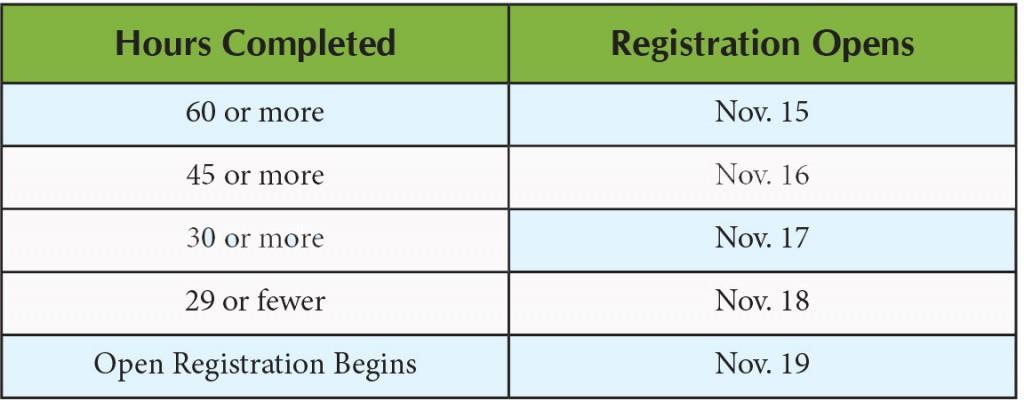Elyssa Whaley/ reporter
Students swimming in a sea of deadlines and work that has to be done ASAP and not having enough space or time to get it all done looked for help at a recent seminar.
Health and physical education instructor Stacy Lueking presented Stress and Time Management Oct. 31, offering TR Campus students some ways to tame the sea and sail calmer waters.
“There’s a lot on our plate,” she said. “It can start to feel overwhelming.”
She first started learning time management in college, Lueking said, and has since then become organized.
“People who don’t manage time properly experience chronic stress, fatigue, despair, discouragement and illness,” she said.
Lueking asked the students how often they found themselves running out of time.
“Was it a weekly, daily or an hourly matter?” she asked. “Are you watching TV, talking on the phone, socializing or daydreaming? Is this interrupting your study time or the other projects you need to work on?”
Lueking presented a checklist, Five Steps to Time Management, to help students get organized: identify time killers and avoid them, use a daily planner, set short- and long-term goals and write them down, identify immediate goals and prioritize them and review accomplishments at the end of the day.
Student Kahleia Hawkins asked, “How do I focus? I have a planner and I’m organized, but I don’t always do what I’m supposed to.”
Lueking told her it took practice.
“Try setting a goal and reward yourself when you finish or take a moment to clear your mind, close your eyes and take deep breaths,” she said.
Successful time managers use a set of skills to help them keep up with the duties of their personal and work lives and set smart goals, she said.
“Smart goals are specific, measurable, acceptable, realistic and time-specific,” Lueking said. “Have a plan and prioritize your most important tasks. You can delegate responsibilities. You can say no to projects. Plan ahead for distractions. Think about how long it will take you to finish your project and give yourself a little extra time and reward yourself for accomplishing your goals.”
From her standpoint as an HPE instructor, Lueking also emphasized that getting the proper amount of rest, nutrition and exercise are important to maintaining low stress levels.
“Take a break and go walking for 15 to 30 minutes a day. Exercise eliminates stress,” she said. “A lot of people say they don’t have the time to exercise. When you make the time, you’ll be surprised.
“Stress affects your body, your thoughts, feelings and behavior. You may notice headache, back pains, chest pains, heart palpitations, high blood pressure, an upset stomach or sleep problems when you’re stressed.”
Lueking said when people can manage their stress, they feel they have better control of their lives and can get back on track when the unexpected happens.
“I really enjoyed the workshop,” student Faith Young said. “I’m looking forward to rewarding myself and prioritizing. For me, prioritizing is a life-or-death thing. When I graduate, I’m going to be a nurse.”




















